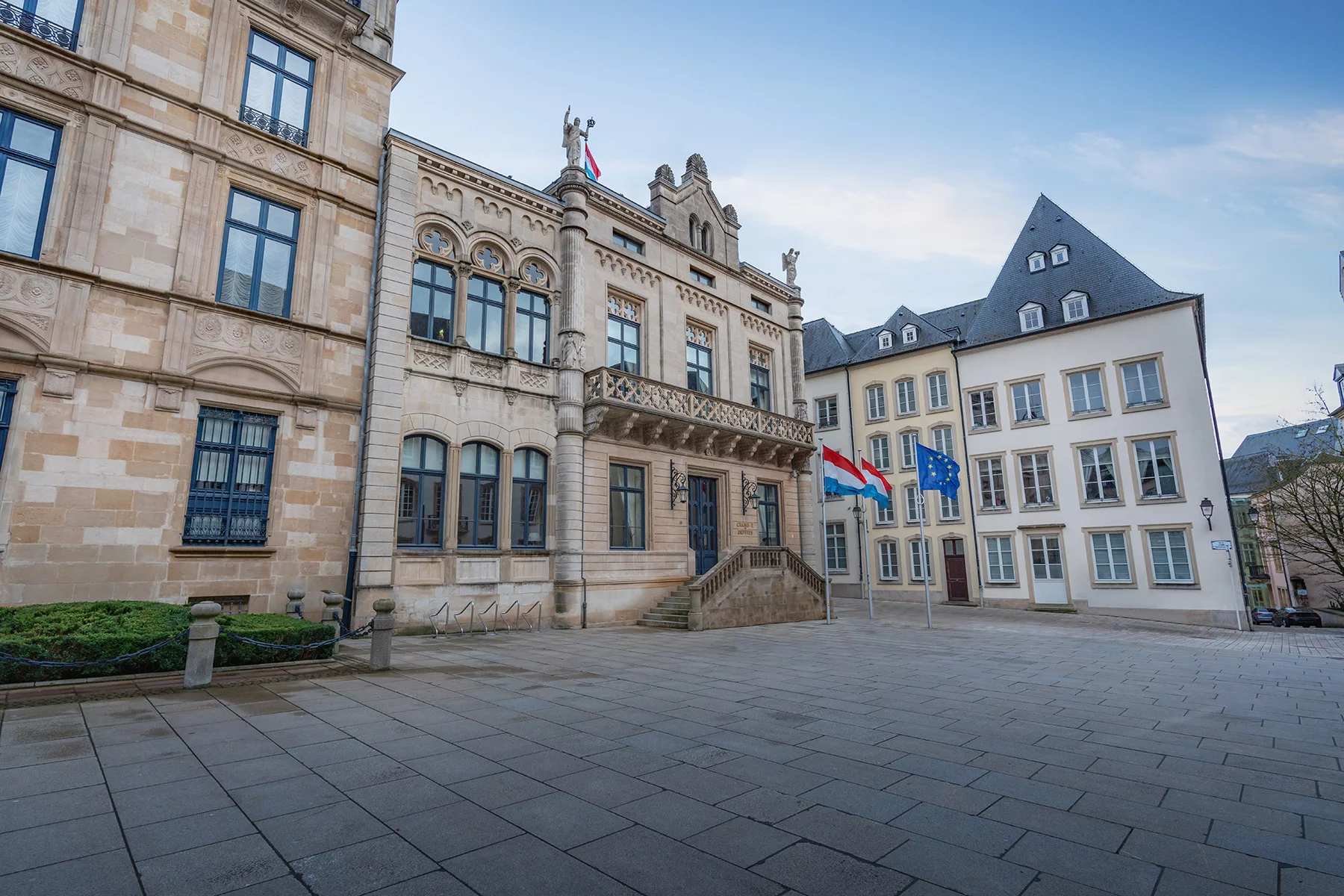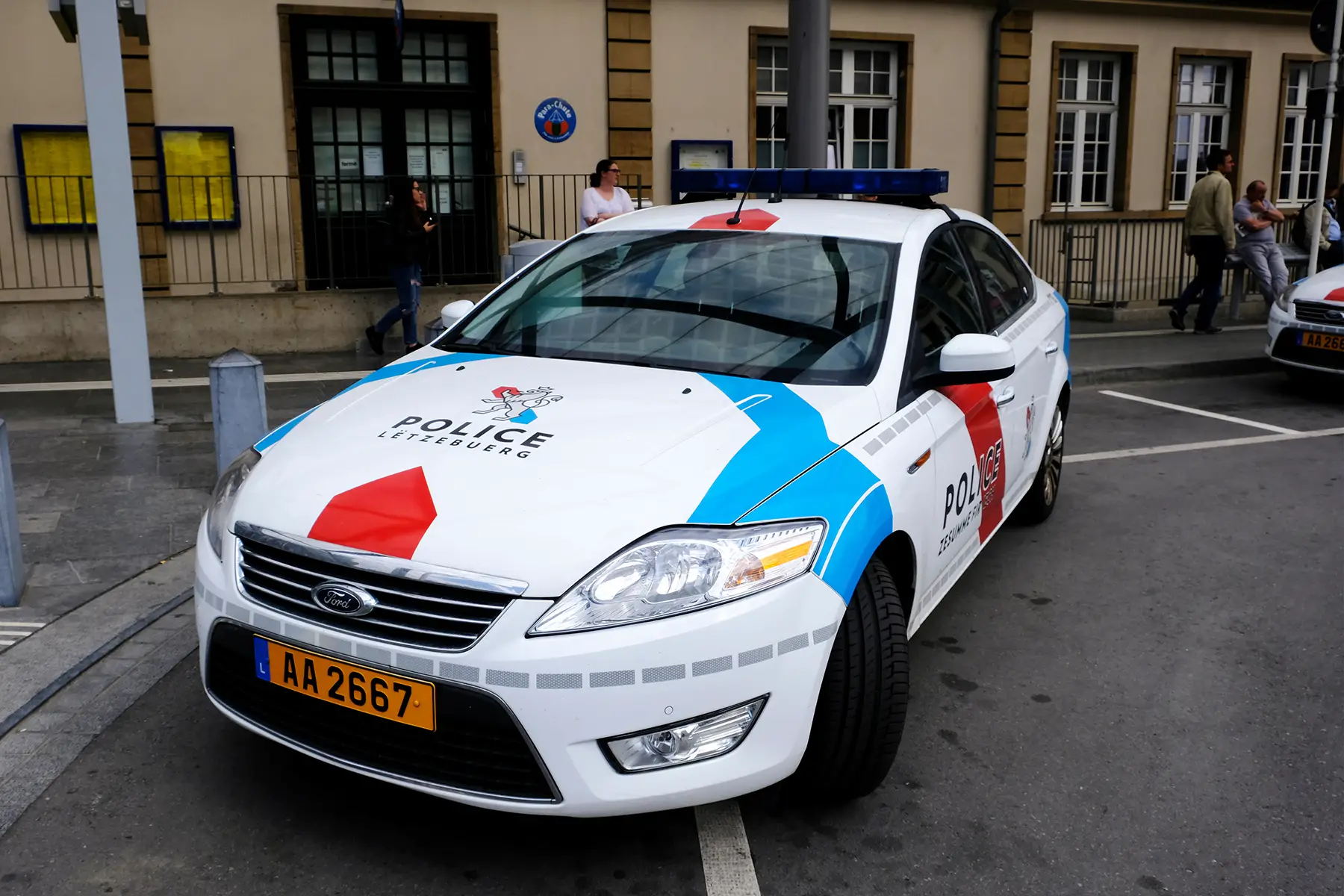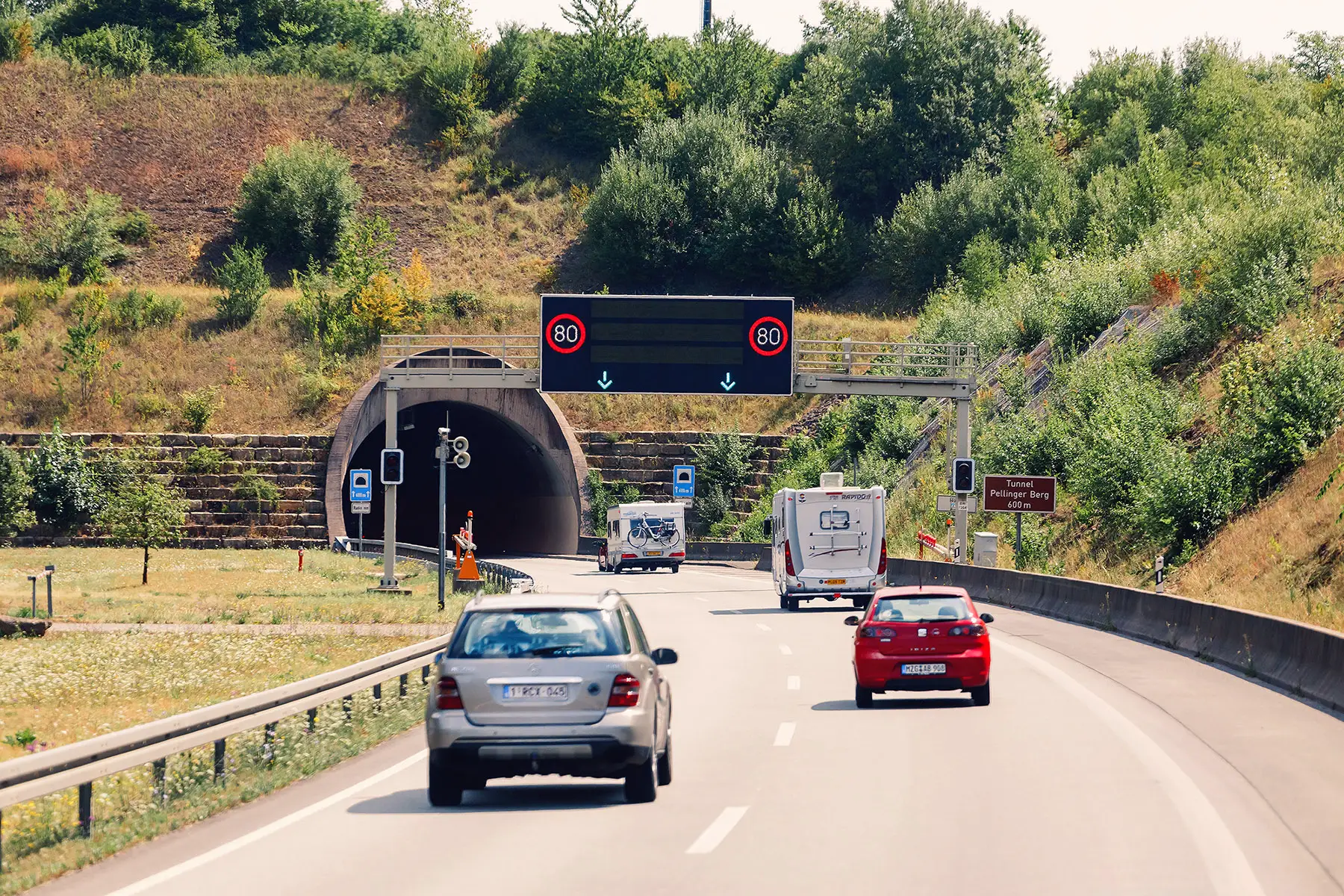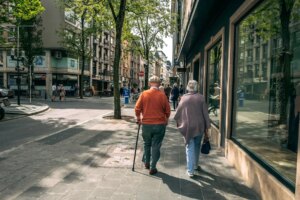When you move to a new country, it’s vital to be aware of its legal landscape and what to do if you witness or are the victim of a crime. It’s also good to be informed about your rights if you’re arrested and how the criminal justice system works.
Find out everything you need to know, from how to report a crime to the trial process. Topics include:
- The legal system in Luxembourg
- Crime in Luxembourg
- Protecting yourself against crime in Luxembourg
- Reporting a crime in Luxembourg
- Police in Luxembourg
- The criminal justice system in Luxembourg
- The trial process in Luxembourg
- Punishments in Luxembourg
- Prisons in Luxembourg
- Your rights if you are arrested in Luxembourg
- Legal rights for foreigners in Luxembourg
- Useful resources
Ground News
Get every side of the story with Ground News, the biggest source for breaking news around the world. This news aggregator lets you compare reporting on the same stories. Use data-driven media bias ratings to uncover political leanings and get the full picture. Stay informed on stories that matter with Ground News.
The legal system in Luxembourg
Luxembourg is a parliamentary constitutional monarchy, meaning it has a Grand Duke, but the prime minister is the head of a democratically elected government.
Freedom House considers Luxembourg ‘Free’ – it has an independent judiciary, and due process is generally upheld. However, there is a concern a law insisting that public sector workers speak fluent German, French, and Luxembourgish excludes non-citizens who cannot access these lucrative roles.
The legal system in Luxembourg is divided into three courts. These courts are responsible for different sections of the legal landscape. The three courts are:
- Judicial Court
- Administrative Court
- Constitutional Court
How fair is Luxembourg’s legal system?
Luxembourg ranks sixth out of 142 countries in the World Justice Project’s 2023 Rule of Law Index, coming first for order and security – crime is effectively controlled and civil conflict is limited. It scores slightly lower for ‘equal treatment and absence of discrimination,’ but its scores are consistently high for the region (EU, EFTA, and North America) and compared to the rest of the world.
That said, there are concerns that, in certain situations, discrimination has gone unrecorded due to a lack of data collection on ethnicity. Furthermore, although Luxembourg has a Centre for Equal Treatment (CET), the Council of Europe has suggested that the country should take more action on hate speech and discrimination.
Crime in Luxembourg
Luxembourg is widely considered a very safe country, with a generally low crime rate. In fact, the 2024 Global Residence Index Safety Index ranked Luxembourg as the 15th safest in the world.
That said, crime is not unheard of in Luxembourg. Official numbers show that in 2022, there were 37,864 crimes (in French) committed in Luxembourg, the vast majority of which were crimes against property. The country also has one of the lowest homicide rates in the world.

Overall, the likelihood of being the victim of interpersonal crime is quite low. However, there is a small chance that you may experience pickpockets, petty theft, or scam attempts. As such, it is important to practice proactive personal safety.
Protecting yourself against crime in Luxembourg
Although crime can happen anywhere, to anyone, you can take some measures to avoid falling victim to it. Here are some ways you can protect yourself:
- Be aware of your surroundings – for instance, it’s best to avoid walking around unfamiliar neighborhoods with headphones in.
- Practice good judgment – for example, if the sun is setting and you can choose between walking home via a poorly lit shortcut or a longer, more populated path, consider the latter.
- Know where your closest police station is and the emergency numbers.
If you are curious about prevention strategies for specific crimes, the Luxembourg police have an exhaustive list of prevention suggestions divided along particular crimes.
Lately, some of the fastest-growing crimes are phone and internet scams. For example, someone may call pretending to be from your bank and deceive you into providing sensitive information that can allow them to withdraw the contents of your bank account. Unfortunately, scammers get more creative every day, so stay updated on the latest scams.
Reporting a crime in Luxembourg
If you are a victim of crime in Luxembourg
If a crime is committed against you, you should first call 112 (general emergency number) or 113 (direct police emergency line). Otherwise, you can report it at a police station, the Prosecutor’s Office, or online.
- Police station: Luxembourg Police provide a map of local police stations. Bring your ID with you when reporting a crime. You’ll be interviewed in your preferred language, and the police will provide an interpreter if necessary. You always have a right to a lawyer so, if you would feel more comfortable with one in the room, let the officer know. Once your interview is complete, you sign the report detailing your statement, which will be sent to the Prosecutor’s Office.
- Prosecutor’s Office: First, find your local office online. The procedure is much the same as at a police station. The person you speak with at the Prosecutor’s Office will advise you on the next steps and what to expect.
- Online: In limited cases, you can report a crime online through Guichet. These include non-violent theft by an unknown perpetrator and fuel theft from a petrol station.
Should you be the victim of a crime in Luxembourg, please know that support is available.
Witnessing a crime in Luxembourg
In an emergency situation, when witnessing a crime, call 112 or 113.
Otherwise, when reporting a crime you have witnessed, the procedure is very similar to that listed in the above section. Once you have given your witness statement, the office will inform you what to expect and the next steps.
The legal system in Luxembourg does not force witnesses to report crimes. However, if a crime is reported and the court summons you as a witness, you must provide testimony or face a fine. Under certain conditions, however, you can be exempted from giving evidence before a judge. It is always wise to consult a lawyer if you enter into any kind of legal proceedings.
Police in Luxembourg
The main law enforcement agency in Luxemburg is the Grand-Ducal Police. It manages the country’s internal security, enforces laws, and protects individual rights. With 15 specialized units, it has the power to investigate crime, handle dangerous animals, manage prisons, issue traffic fines, and assist the army where requested.
The Grand-Ducal Police is the agency that most civilians will encounter if they ever need to deal with law enforcement. Officers in the Grand-Ducal Police wear a uniform. If you are looking for one, they are usually in dark clothing with ‘POLICE’ inscribed on the front and back.
The criminal justice system in Luxembourg
The criminal justice system in Luxembourg primarily functions through the judicial court. At the lowest, magistrate level, the judicial court deals with crimes brought forth by law enforcement and civil and commercial cases where the disputed amount is less than €10,000. Although organizations like Interpol function within Luxembourg, the Grand-Ducal Police and the Judicial Branch handle the bulk of criminal justice challenges in Luxembourg.

According to the legal system in Luxembourg, a misdemeanor is considered a minor offense. It results in a fine, confiscation of property, bans from certain activities, or imprisonment between eight days and five years. A crime is a more serious offense that can lead to the previously listed penalties and long-term imprisonment, even a life sentence.
Courts in Luxembourg
Judicial court
Also known as courts of law, the judicial court in Luxembourg consists of three levels. The magistrate courts, which are the courts of first instance, are located in Luxembourg City, Esch-sur-Alzette, and Diekirch.
The second level of judicial courts consists of the district courts located in Luxembourg City and Diekirch. District courts handle matters not expressly assigned to other courts and can act in a corrective manner in criminal cases.
The final level of judicial court is the Supreme Court of Justice, located in Luxembourg City. This court is generally an appeal court, reviewing cases from lower courts. However, in certain cases, this court is responsible for hearing charges against members of the government.
Administrative court
The administrative court includes the Administrative Tribunal and the Administrative Court. The Administrative Tribunal is a court of first instance for disputes against administrative decisions. These disputes can be based on abuse of power, incompetence, and unprotected private interests, among others. The Administrative Court reviews appeals of lower court decisions.
Constitutional Court
Located in Luxembourg City, the Constitutional Court is tasked with ruling on whether certain laws are constitutional. Citizens cannot directly access the Constitutional Court; instead, cases reach it through judicial or administrative courts.
The trial process in Luxembourg
At a trial, the defendant is tried for one of the following:
- A minor offense (French: infraction mineure, German: geringfügiges Vergehen, Luxembourgish: kleng Beleidegung)
- A major offense (French: délit, German: Angriff, Luxembourgish: beleidegt)
- A crime (French: crime, German: Verbrechen, Luxembourgish: d’Kriminalitéit)
Those accused of a minor offense go to the police court and face one judge, while major offenses result in being tried by three judges at the district court. If you face trial in Luxembourg and do not speak one of the country’s official languages, the court will provide an interpreter free of charge.
The judge may call witnesses to provide testimony but courts do not allow for cross-examination. The legal system in Luxembourg does not allow jury trials, so judges have the power in the courtroom. Decisions are usually sent out two to three weeks after the trial.
Punishments in Luxembourg
Punishments in Luxembourg vary depending on the severity of the crime. That said, any convictions or official penalties go on your criminal record certificate, which some jobs require you to provide. Here is a list of possible punishments in Luxembourg:
- Fine
- Special confiscation (of any assets related to the offense)
- Driving ban
- Loss of certain civil and political rights
- Ban on certain professional or social activities
- Closing of a business
- Public announcement of sentencing
- Imprisonment

Once a person is sentenced to prison, they are assigned a Probation Officer, who works with them for the duration of their prison stay and through their release. While Luxembourg does not keep statistics on reoffending or recidivism (PDF), probation officers seek to keep these numbers down. They provide organizational and financial support upon release to help former prisoners get back on their feet.
Capital punishment in Luxembourg
Luxembourg practiced capital punishment for hundreds of years. However, the Grand Duchy abolished the death penalty for all crimes in 1979. In 1999, the country amended the national constitution to prohibit it completely.
Common sentences and punishments
Most serious crimes in Luxembourg
The most severe punishment available in Luxembourg is life imprisonment. The crimes that receive life imprisonment tend to be those that the country considers most serious. These include:
- Attacks against the Grand Duke, the Crown, or members of the royal family
- Attempts to overthrow the Luxembourg state or to change the order of succession
- Serving as a foreign agent against the Luxembourg state
- Homicide, murder, and poisoning resulting in death
Violent crime in Luxembourg
Violent crime in Luxembourg consists of acts that harm others, causing bodily injury, but that do not cause death. Depending on the offense, punishments range from three to 30 years imprisonment and a fine. Examples of such crimes include:
- Enforced disappearance
- Assault
- Deliberate injury
- Female genital mutilation
- Hostage-taking
Theft and burglary in Luxembourg
Punishment for theft without violence in Luxembourg varies but generally includes a fine and a prison sentence. The prison term can range from one month to five years. If the accused person was or impersonated a public servant or the theft involved a break-in, the sentence can increase to ten years in prison.
Theft involving violence, threats, or extortion may result in prison sentences ranging from five to ten years. Terms can reach twenty years if there are certain compounding conditions, like the use of weapons or if the theft results in permanent mutilation or damage.
Terrorism offenses in Luxembourg
The Luxembourg penal code considers terror offenses to be those that intend to seriously intimidate a population or destabilize the social, political, and economic structure of the country. The penalty for terrorism can range from three years to life imprisonment, depending on the severity and the consequences of the act. Crimes include:
- Financing a terrorist organization
- Participating in the lawful or unlawful activities of a terrorist organization
- Publicly disseminating information about a terrorist organization
- Carrying out violent terrorist acts
Drug and alcohol-related offenses in Luxembourg
Cannabis in Luxembourg is legal for adult use. That said, there are requirements about where and how much can be consumed.
With other drugs, offenses can range from six months to five years, plus a fine of up to €1.2 million. If convicted, you may also face school expulsion, inability to get a driving license, and a note on your permanent criminal record. Criminal activity includes:
- Consumption, acquisition, and possession
- Use in the presence of minors
- Consumption as a teacher or school employee
Fraud in Luxembourg
Punishment for fraud in Luxembourg depends on the crime; generally, it involves a fine and potentially a prison sentence ranging from eight days to five years. Crimes of fraud include the following:
- Fraudulently declaring bankruptcy
- Mishandling money or goods that have been entrusted to you
- Using false names and qualities to appropriate goods belonging to others
The penal code lists the offenses that fraud entails.
Driving/traffic offenses in Luxembourg
Driving offenses in Luxembourg can lead to various punishments. These can include a fine, demerit points on your driving record, seizure of your license, or a temporary ban on driving. Driving offenses include the following:
- Drunk driving
- Speeding
- Distracted driving
- Illegal parking
For a full list of driving offenses and their penalties, check out the Grand Ducal Police website.
Hate crimes/crimes of racial or religious hatred in Luxembourg
While the legal system in Luxembourg does not codify hate crimes, it does reference racism, revisionism, and discrimination. Any prejudice based on national origin, sex, gender, skin color, and other identities is illegal.
This discrimination could take the form of inciting hate speech, refusing to provide services, unfair hiring or firing practices, or an overall difference in treatment based on a particular identity. Penalties for this offense can range from fines to up to two years in prison.
Immigration-related crimes in Luxembourg
Most non-EU citizens must have a valid visa to live in Luxembourg. If you overstay your designated time period or work without authorization, you are breaking the law. The punishment can range from a fine to an outright ban on entering Luxembourg for a certain amount of time.
Minor crimes in Luxembourg
Most crimes in Luxembourg are minor offenses. This usually means shoplifting, stealing a car or bicycle, or scams – crimes that involve no violence. And while punishments for minor crimes depend on the crime, they generally consist of fines or short prison stays.
Prisons in Luxembourg
Luxembourg has three prisons: Luxembourg Prison Center, Uerschterhaff Prison Center, and Givenich Prison Center. Prisoners in Luxembourg usually have their own rooms but share communal areas and workspaces.

All prisoners must work, and each receives an appropriate job assignment based on their capabilities. While Luxembourg and Uerschterhaff are both closed prison systems, Givenich is semi-closed, meaning prisoners can work inside and outside the prison. Prisoners also have access to education and healthcare. As of June 2023, Luxembourg’s prisons hosted 665 inmates.
Your rights if you are arrested in Luxembourg
If the police arrest you, it’s important to get context about the trial and legal system in Luxembourg. Be sure to get a lawyer as soon as you can, and if you cannot afford a private legal professional, seek one through Legal Aid.
Generally, within 24 hours of being detained, you should either be released or taken to an investigating judge, who will explain the charges against you and your rights. Once you’ve met with them, they will decide whether you will be held until your trial or released on bail. In the latter case, you must follow your bail conditions. Ideally, your lawyer will be able to review this with you in detail.
Legal rights for foreigners in Luxembourg
Once you are legally living and working in Luxembourg, you are a resident foreigner. As such, in the eyes of the legal system in Luxembourg, you have very similar rights to citizens in terms of Legal Aid.
That said, the Luxembourg government does hold ultimate authority over whether you may stay in the country. Therefore, for foreigners who commit significant offenses, such as crimes against the state, imprisonment or deportation are real possibilities.
Extradition treaties
Luxembourg is a member of the EU. Due to the open borders within the Schengen Area, Luxembourg participates in the European Arrest Warrant. This procedure allows law enforcement to share information and prosecute crimes that may happen across European borders.
In addition, Luxembourg is a member of multiple international networks that cooperate to share police information. However, the United Nations Office on Drugs and Crime (UNODC) suggests that it has many foreign prisoners in detention and that it could benefit from a broader network of bilateral extradition treaties.
Useful resources
- Local police station – find your nearest police station
- Crime prevention – strategies from the Luxembourg police
- Latest scams – information on recent scam tactics
- Guichet.lu – report certain crimes online







